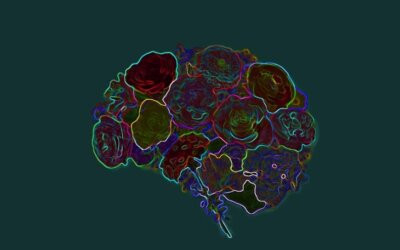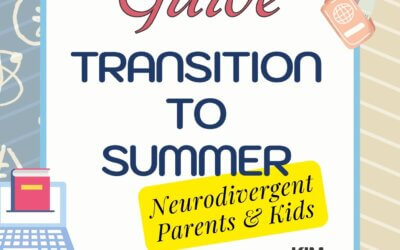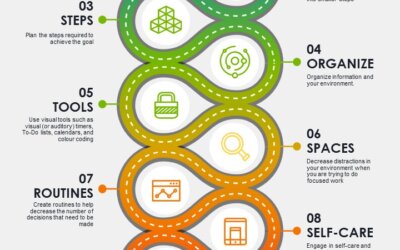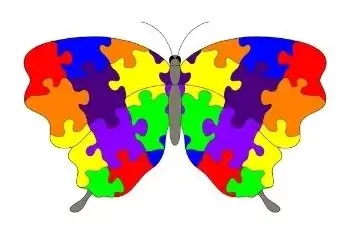Lately, I’ve been thinking a lot about how my ADHD brain works. I mean, I get shit done. But rarely in the right order. Not systematically, step by...
INFORMATION FOR EVERYONE
![]()
CONNECTING
THE
DOTS
articles, resources, information, research findings, quizzes, it’s all here

Information chaos is a state of having too much information, not enough information, hard to access information, and just plain wrong information. The information landscape for Autism (ASD) and AD(H)D (Attention Deficit and Hyperactivity Disorder) and other kinds of neurodivergence is rife with chaos. It’s hard to know where to look for reliable, accurate information. It’s hard to make sense of conflicting information. And it’s hard to sort out fake facts from facts. At Scattergram, we enjoy diving into the chaos and connecting the dots so that we can provide you with the neurodiverse-affirming answers and resources you are looking for.
Click on the card for specific curated articles and resources on that topic.
Neurodivergent Youth
(12 - 17)
challenges at school, time management & organization, anxiety & depression,
sensory sensitivities,
social isolation, questions around identity
Neurodivergent
& LGBTQ2SI+
exploring sex and gender identity, gender transitioning and affirmation, relationships, coming out, community
Not sure if you are
neurodivergent?
Thought about getting assessed, but wonder if
there is any point? Take our quiz or read more
Neurodivergent Young Adults
(18 - 29)
building a meaningful, authentic life, clarifying values, exploring possibilities for school, work, or creativity, setting goals,
finding love and community
Parents
of a neurodivergent person
letting go while holding on, shifting boundaries, understanding atypical development, it will be alright
How we can help
connect the dots
All our therapists are trained in Scattergram’s A.C.C.E.P.T.
neurodiversity-affirming treatment model
Neurodivergent
Adults
navigating work, relationships & parenting, late diagnosis, masking and unmasking, autistic burnout, values & goals clarification,
financial security, aging
Partner
of a neurodivergent person
couples
neudodivergent/neurodivergent or neurodivergent/neurotypical
Frequently Asked
Questions
Relating to Scattergram’s practice
and neurodiversity
All articles and resources
What One Neurodivergent Therapist Has Learned from the Stoics
Epictetus, one of the Ancient Stoic Philosophers, tells us to "Make the best use of what is in your power and take the rest as it happens." As a...
My Neurodivergent Brain: A Note to Neurotypicals on Fostering Positive Interactions
“My hope is that neurotypical individuals also invest in personal growth and understanding, both for the sake of their relationships with neurodivergent individuals and for enriching our society with diversity and creativity”. – Therapist Rebeeca Goldstein
Why are transitions so hard?
Whether you’re a neurodivergent parent or a child or young adult, transitions like the end of the school year can disrupt your well-oiled schoolyear...
Types of Therapy
Types of Therapy & Modalities common to our therapists defined: DBT, CBT, Mindfulness, Trauma-informed and of course the A.C.C.E.P.T Program™.
10 Executive Functioning Tips
By Harsha BabaniM.Sc. (OT), OT Reg. (Ont.), Reg. OT (AB)Occupational TherapistWe've put together some tips to enhance executive functioning...
Communication Styles Quiz
Worry about how you come across to others, at home, school, or work? And if you’re neurotypical, you may wonder why it’s so hard to communicate with a ND loved one or colleague.
All those damn puzzle pieces!
All those damn puzzle pieces. There is no missing piece! The only puzzle is the puzzled minds of neurotypical people who can’t expand their perceptions of reality to understand how Autistic people perceive and experience their reality so differently. Both valid. Just different.
An Abbreviated Glossary of the Neuroverse
Language is important. It helps us to understand and shape reality. Myths and misinformation about neurodivergence abound. We hope this abbreviated...
Our Social Media Accounts
Let us help you connect the dots
At Scattergram we have a process for exploring neurodivergence that goes beyond a checklist of deficits.
















